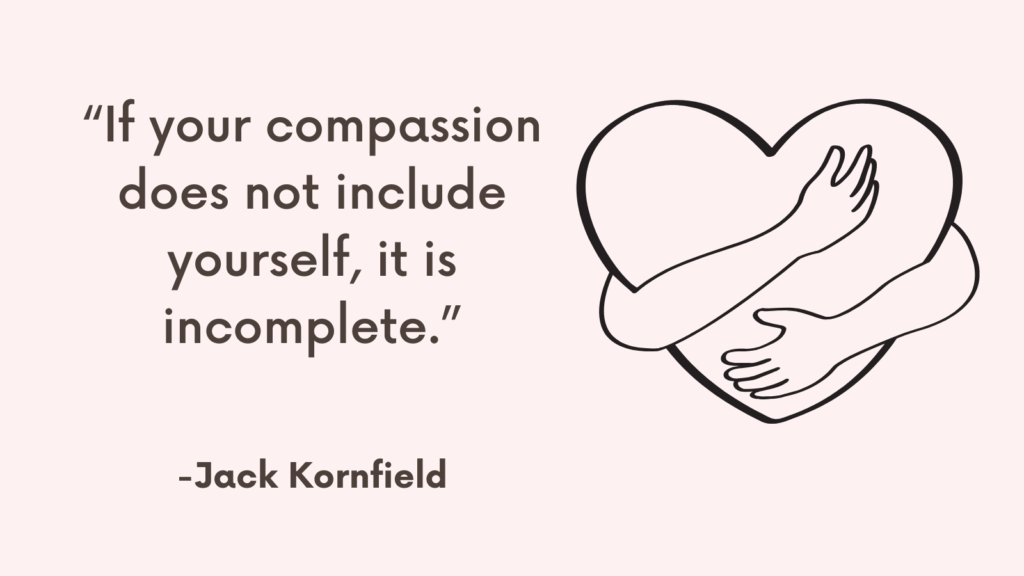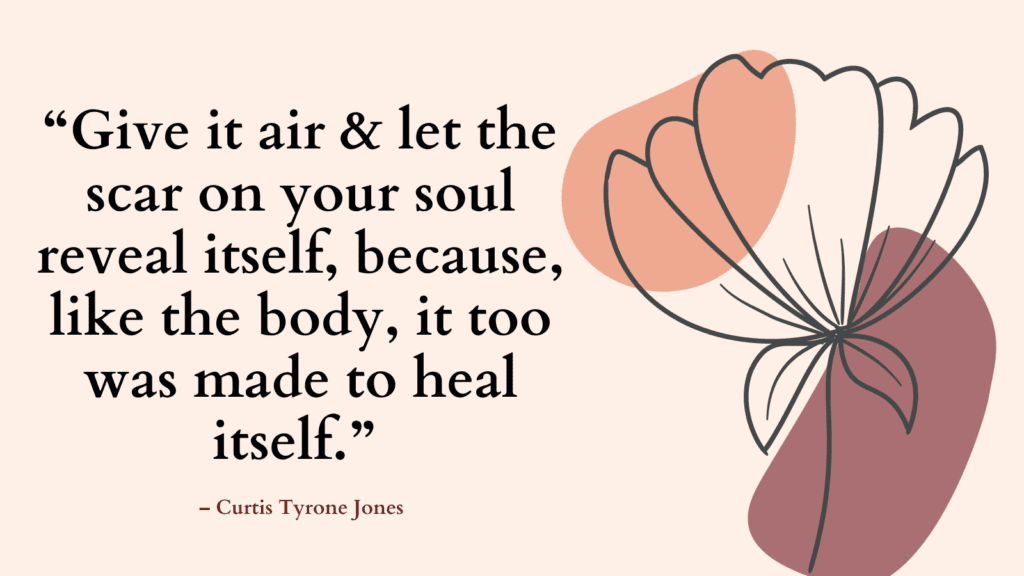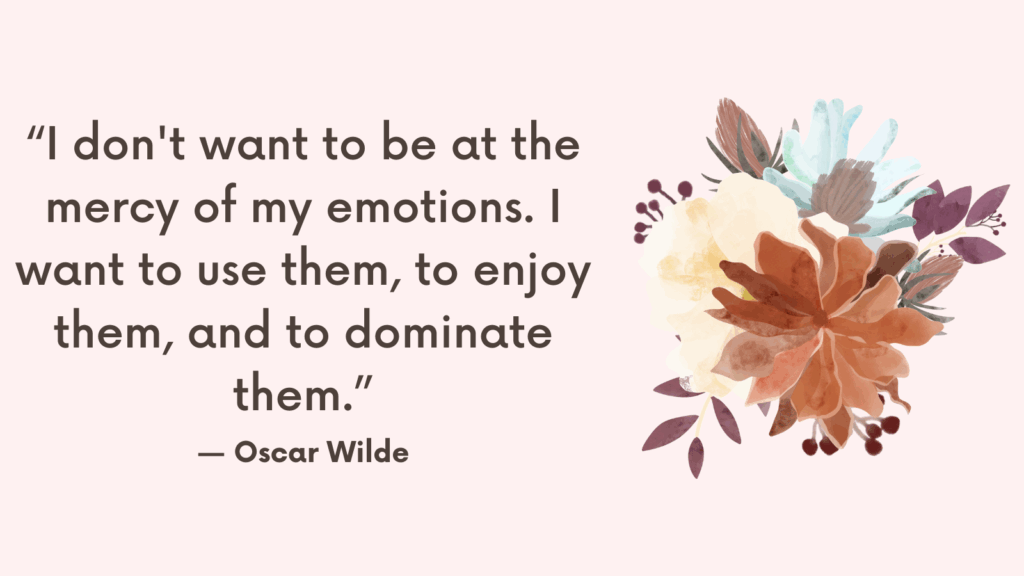Today, you’re going to learn the difference between inner critic and inner coach along with powerful techniques to to stop self-critical thoughts.
Inner Critic vs Inner Coach
The Inner Critic and Inner Coach are two aspects of our inner voice that can greatly affect our self-esteem, motivation, and overall wellbeing.
The Inner Critic is the voice that tells us we’re not good enough, that we’ve made a mistake, or that we’ll fail.
It can be harsh and critical, and often leads to feelings of anxiety and self-doubt.
On the other hand, the Inner Coach is a positive and supportive voice that encourages us to take risks, learn from our mistakes, and grow.
It helps us see our strengths, set achievable goals, and celebrate our successes.
For example, imagine you have a big presentation at work.
Your Inner Critic might tell you that you’ll forget your lines, that no one will be interested, or that your colleagues will judge you.
But your Inner Coach would remind you of past successful presentations, encourage you to prepare and practice, and remind you that your ideas are valuable.
Developing a positive and nurturing Inner Coach can greatly improve our mental health and overall outlook on life.
It takes practice to recognize and challenge our Inner Critic, but with time and effort, we can learn to quiet its negative voice and listen to the supportive guidance of our Inner Coach.
Your Thoughts Aren’t Your Reality
We seem to believe that our thoughts are a reality. Therefore, we believe everything our mind says, including that we’re a failure, incapable, unlovable…
According to an article published by the National Science Foundation in 2005, an average person has about 12,000 to 60,000 thoughts per day. 80% of those are negative and 95% are repetitive thoughts.
According to another study, scientists asked subjects to write down their worries over an extended period of time. They found that 85% of what subjects worried about never happened. As for the 15% that did happen, 79% of the study subjects discovered either they could handle the difficulty better than expected, or the difficulty taught them a lesson worth learning. (Leahy, 2005, Study of Cornell University)
Do You Struggle With Recurring Self-Critical Thoughts?
The following are some signs you might be struggling with recurring self-critical thoughts about yourself:
- You feel intrinsically flawed.
- You feel terrible about yourself when you make a mistake.
- You tend to give up before you begin when you think of trying something new and challenging.
- You feel ashamed of everything about yourself.
- You find it difficult to forgive yourself when you do something wrong.
- Your self-confidence is so low that you don’t believe you can amount to anything.
- You believe that it is safer not to try than to fail or get rejected.
- You feel ashamed when you don’t measure up to others’ expectations.
- At a deep level you feel like you don’t have the right to exist.
- You have a nagging feeling that you are bad or inadequate.
Related: Top 10 Practical CBT Exercises For Generalized Anxiety Disorder Relief
Meet Your Inner Critic
Our inner critic is a part of us that is responsible for our feelings of worthlessness.
When your inner critic attacks you and you believe its words, you may feel ashamed, hopeless, inadequate, or a sense of having something inherently wrong with you.
This may result in low self-esteem, obsessive thinking and intrusive negative thoughts, performance fears, and even addictions.
This inner critic may:
- Criticize your looks, your work habits, the way you care for others.
- Judge your feelings and behavior.
- Tell you what you should and shouldn’t do.
- Doubt you and tell you that you can’t achieve your goals.
- Make you feel guilty about things you have or haven’t done.
Related: How to Challenge and Change Your Negative Core Beliefs?
How the Inner Critic Develops?
The inner critic develops early in childhood when the child forms negative views of himself as he assimilates negative attitudes or feelings directed toward him. He would later take these attitudes on as his own point of view toward himself.
This inner critic continues to shape the child’s life beyond childhood. Someone who has been told that they were too needy, as an adult, learns not to burden others with their wants, until, eventually, they lose touch with themselves.
When the child experiences abuse, the inner critic continues to tell him that he deserves to be treated badly as an adult.
How the Inner Critic Operates?
Pretending to Be Your Conscience
The inner critic does not represent your conscience or values. The difference lies in the punishing, degrading tone of the critical inner voice.
Instead of inspiring you and motivating you to take constructive action, the inner critic triggers your self-loathing and hopelessness.
Quite the opposite the inner critic encourages you to have that extra helping of food and then criticizes your lack of willpower.
Attacking Your Authentic Self
The inner critic inhibits your ability to develop a true sense of who you are and to pursue what you really want in life.
The voice may say something like, “Be quiet! No one wants to hear from you,” or, “Don’t get too excited! You’re just trying to get attention.”
This only feels your insecurities and may lead you to either take on a false self to hide who you are for fear of being rejected, or withdraw and isolate yourself.
Attacking Your Relationships
In the same way that you can have a split view of yourself, you also have a split view of other people in your life.
At times, you may see your partner as lovable, and at other times, you can only focus on your partner’s shortcomings.
The inner critic may, for example, attack your partner by saying things like, “He doesn’t seem that great. You can do much better.”
The Inner Critic Is Trying to Help You
This might sound ironic, but the inner critic is actually trying to help you and protect you.
For example, it may prevent you from ever trying anything difficult by constantly judging and discouraging you to keep you safe from failure and humiliation.
Understanding the positive intent of your inner critic can help you address it more effectively knowing exactly what distorted belief your need to challenge.
Related: Top 10 Signs Of Toxic Shame In A Person (+Best 20 Healing Shame Exercises)
7 Common Types of Inner Critics
Most people have a number of inner critics. The following are 7 common types of them:
The Perfectionist
- This critic is trying to get you to do everything perfectly.
- It sets high standards for performance and will attack you when you don’t meet them by saying something like, “Your work is not good enough.”
As a result, you may find yourself unable to finish a project or even start one.
Related: Top 20 Practical Ways to Overcome Toxic Perfectionism (& Get Things Done)
The Inner Controller
- This inner critic is trying to control impulsive behavior such as rage, overeating, and addiction by shaming you after you indulge.
Related: Best 6 Ways to Let Go of Wanting to Control Everything
The Taskmaster
- This inner critic is trying to motivate you to work hard by telling you something like, “you’re lazy,” or “you are incompetent.”
The Underminer
- This inner critic is trying to protect you from failure and rejection by undermining your self-esteem and preventing you from trying in the first place.
- It may tell you something like, “you are worthless,” or, “you are inadequate.”
The Destroyer
- This inner critic believes that it’s safer for you not to exist and so it will deeply shame you and attack your self-worth.
- It is usually triggered by early trauma.
Related: How To Break Generational Trauma? 5 Steps To Release Trauma & End Self-Sabotage
The Guilt Tripper
- This inner critic attacks you for something you did (or didn’t do) that violated a deeply held value or was harmful to someone.
- Its goal is to make you feel bad in an attempt to get you to stop.
The Molder/Conformist
- This inner critic is trying to get you to fit a certain societal or cultural expectation by attacking you when you don’t fit into that mold.
Related: Top 21 Proven Ways to Stop People Pleasing (+Free Worksheets)

How To Stop Self-Critical Thoughts: Top 10 Techniques
When we become aware of our inner critic and the negative thoughts it’s feeding us, we tend to react in one of the following ways:
(1) We may try to ignore the inner critic and think positive thoughts instead.
While this may work at times, it doesn’t solve the problem and may get the inner critic to scream louder, overriding any attempts to ignore it.
(2) we recognize that the inner critic is a part of our psyche with its own perspective, feelings, memories, motivations, and goals.
When we understand the inner critic’s fears and acknowledge that it’s trying to help us, we can accept it and work with it in a way that helps the inner critic part of us let go of its fears.
Related: How to Challenge and Change Your Negative Core Beliefs?
The following are some strategies to help you stop negative thinking:
#1. Distance Yourself From Your Thoughts
When your mind says that ‘life sucks!’ acknowledge that thought by simply saying ‘I’m having the thought that life sucks.’
The phrase, ‘I’m having the thought that…’ gives you distance from the actual thought, and helps you step back and observe it.
This makes you more conscious about the process of thinking. You see the thought for what it is – a string of words. They may or may not be true.
As a result, you’re less likely to take your thoughts literally.
#2. Ask Yourself “Is This Thought Helpful?”
It doesn’t matter whether or not the thought is negative. What matters is whether or not it’s helpful and worth paying attention to.
If you made a mistake at work and your mind is telling you “You’re incompetent,” This isn’t a helpful thought. It doesn’t tell you what to do to improve and is only putting you down.
What you need to do here is focus on improving your skills or asking for help.
If, however, you think that having the thought that ‘you’re incompetent’ isn’t demoralizing, and is in fact prompting you to learn and fix your mistakes, then, by all means, make use of it.
But almost always, negative thoughts, especially self-critical ones, don’t motivate people to take effective action.
For instance, people with weight problems will usually react to these thoughts by eating more in a futile attempt to feel better.
Related: 10 Common Cognitive Distortions — and How to Correct Them
#3. Name Your Stories
Our minds are constantly retelling negative stories, such as the ‘loser’ story, or the ‘I can’t do it’ story, or the ‘I’m fat’ story.
The aim here isn’t to fight the story but to simply acknowledge it.
When you identify your mind’s favourite stories and give them names, you become less likely to get caught up in them.
By saying “Here comes the old ‘I’m a failure’ story.” You’re acknowledging the story without challenging it and without giving it much attention either.
Simply let it come and go as it pleases, while you focus your energy on whatever you’re doing at the moment.
Related: Anxiety Relief: How to Treat Anxious Symptoms and Thoughts Effectively?
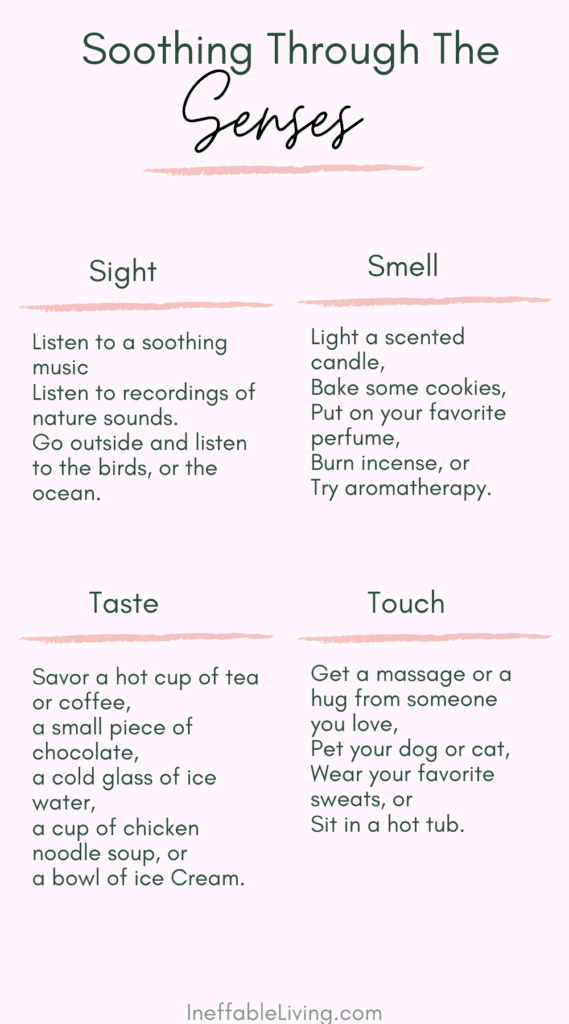
#4. Thank Your Mind
This is a simple technique to detach yourself from your negative thoughts.
When your mind tells you something negative, simply thank it.
You can silently say to yourself “Thank you, Mind! How informative!”
Make sure you don’t say it in a sarcastic or aggressive manner. Rather, say it with humor and with a genuine appreciation for your mind’s amazing ability to generate a never-ending stream of thoughts.
#5. Don’t Take It Seriously
When a recurrent negative thought or self-judgment is bothering you, choose an animated cartoon character or an actor with a humorous voice and hear it in his voice.
Doing this makes it less likely for you to take the thought seriously.
You might even find yourself grinning or chuckling at the thought.
#6. Focus On Something Else
Negative thoughts shouldn’t be a problem in their own right.
It’s only when you believe them, react as if they were the truth, and give them your full attention, that they become problematic.
In fact, our minds are constantly reminding us of bad things from the past, warning us of bad things to come in the future, and updating us on what’s wrong with us.
There’s no way to switch these thoughts off. Once in a while, it might cheer you up and give you a brilliant idea, but not too often.
But like a radio that is playing in the background, you can choose not to pay attention to these thoughts and instead focus on what you’re doing at the moment.
Related: Regulate Your Emotions: How To Control Your Intense Emotions?
#7. Consider A “Friend’s” Perspective
This is one of the simplest strategies that work wonders. When your mind is racing with anxious thoughts, pause for a moment and ask yourself, “If a dear friend was having the same thoughts, would I agree? What would I tell him?”
You don’t have to come up with instant or perfect things to say. Seek out every idea you can think of until you reach a creative solution.
Related: How to Challenge and Change Your Negative Core Beliefs?
#8. Create Calm Thoughts
Crowding out your anxious thoughts with calm thoughts is a great way to shift your thinking.
The key here is to look for more reasonable and believable alternatives to your negative thoughts.
Begin by putting your negative thoughts on paper. Leaving it in your head can make it hard to examine these thoughts and come up with a more realistic alternative.
For example,
Anxious thought: If I lose my job I’ll go bankrupt in a matter of weeks.
Reasonable alternative: Losing my job will cause some challenges. However, odds are I’ll find another job soon enough, and I have family and friends who would help if I needed them to.
#9. Watch Out for Anxious Words
Examine your inner chatter. Do you ever exaggerate? Predict horrible outcomes? Do you tend to use words like never, impossible, and unbearable?
Using negative self-talk increases your anxious thoughts and quells your unnecessary anxiety.
Worry words come in four major categories:
1. Extremist
Words that exaggerate or turn a minor event into a disaster, such as awful, devastating, disastrous, horrible, and unbearable.
Change your extremist words:
- Difficult but not unbearable
- Uncomfortable but not intolerable
- Disagreeable but not devastating
- Distressing but not agonizing
2. All-or-none
Black-and-white thinking. Polar opposites with nothing in between. These words include all, always, complete, constant, everyone, forever, no one, none
Changing your all-or-nothing thinking
Negative thought: I’ll never get the job.
Thought without distortion: Right now, I don’t know whether I’ll get the job or not. But I’ll do my best to see to it that it happens.
3. Judging, commanding, and labeling
Judgments: These include harsh judgments about yourself, such as bad, inadequate, stupid, pathetic,…
Commandments: These include telling yourself that you should or must take a particular action.
Labels: These include self-critical labels, such as loser, pig, monster, jerk, and failure.
Changing you judging commanding, and labeling thinking:
Judging: I made another mistake. I must be stupid.
Reasonable alternative: expecting not to make mistakes is unrealistic, but I can learn from this mistake and work harder.
Commanding: I should have what it takes to keep my relationship happy.
Reasonable alternative: As much as I’d like to have a happy relationship, I don’t have complete control over the outcome — it takes two, after all. But I was okay before I met my partner, and I can learn to be okay again if I have to.
4. Victim
Underestimating your ability to cope, such as telling yourself, “I can’t, I’ll never be able to do it, this is impossible.”
Vanquishing victim thinking:
Victim: I feel overwhelmed by anxious thoughts. I feel helpless.
Reasonable alternative: I do have difficulties dealing with my anxious thoughts. However, I could read on the subject and practice proven techniques until I get better and I can also reach out to a therapist to help me with my anxious thoughts.
Related: Anxiety Free Resources
#10. Tolerate Uncertainty
Anxious people detest uncertainty.
They believe that if they could control everything around them, they wouldn’t worry so much, and that might be true.
However, life consists of constant uncertainty. Accidents and unforeseen events happen.
Not only is the task of preventing negative outcomes impossible, but trying to do so can ruin your life. If you overprotect your children because you worry that they’ll get into trouble, you’ll end up greatly limiting their lives.
Worrying doesn’t change the outcome.
Some people believe that if they worry enough, bad things won’t happen. That’s because most of your worries don’t happen, so you think that worrying has paid off. But worry by itself does not prevent anything from happening.
Take reasonable precautions.
Take reasonable precautions regarding your well-being, and let go of your need to predict and control.
Find ways to embrace uncertainty.
Appreciate the excitement and possibilities that come with uncertainty. Acknowledge that without suffering and adversity, you won’t be able to value the good moments.
Related: When Your Brain Lies to You: How to Stop Cognitive Distortions

Conclusion
Keep in mind that when detaching yourself from your negative thoughts, the aim isn’t to get rid of these unpleasant thoughts, but rather to see them for what they are – just words. They might go away, or not.
So don’t expect the techniques explained above to make you feel good instantly, that’s a by-product.
In fact, the main goal of these techniques is to focus your attention on more important things.
Moreover, these techniques are skills that you get better at with practice and persistence.
Related: CBT Worksheets Bundle (FREE PFD Download)
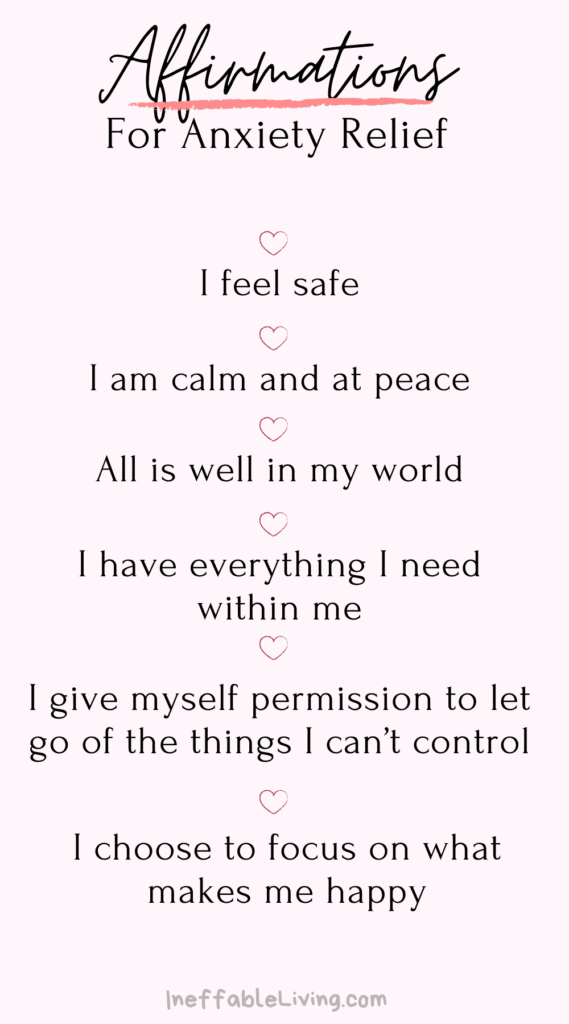
Resources
- Portions of this article were adapted from the book Overcoming Anxiety for Dummies, © 2002 by Charles H. Elliott and Laura L. Smith. All rights reserved.
- Portions of this article were adapted from the book Freedom from Your Inner Critic: A Self-Therapy Approach, © 2013 by Bonnie Weiss and Jay Earley. All rights reserved.
- Becoming Aware of Inner Self-Critique and Kinder Toward Self: A Qualitative Study of Experiences of Outcome After a Brief Self-Compassion Intervention for University Level Students – PMC (nih.gov)
- Facing Your Inner Critic | Psychology Today
- The Seven Types of Inner Critics (personal-growth-programs.com)
